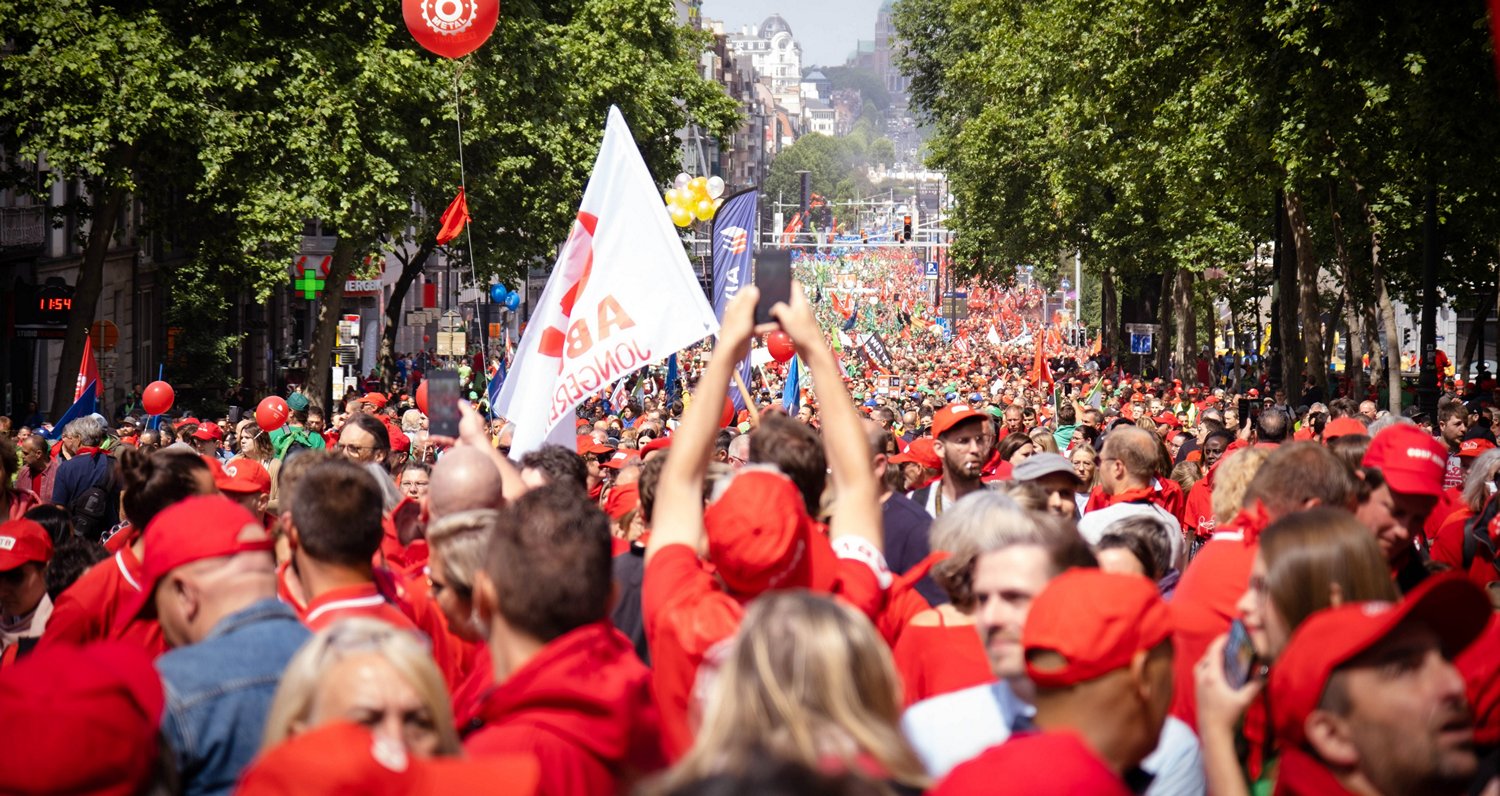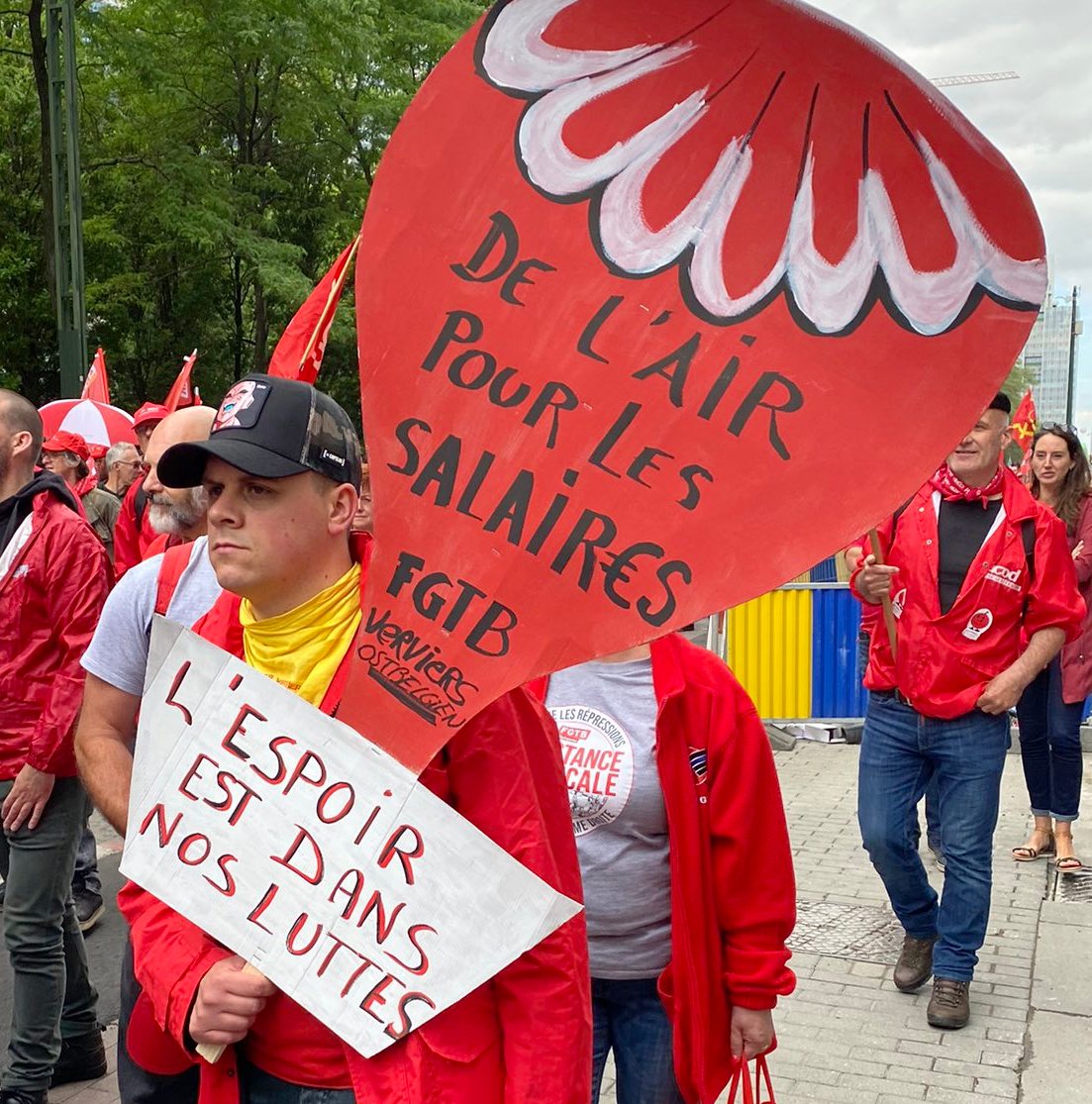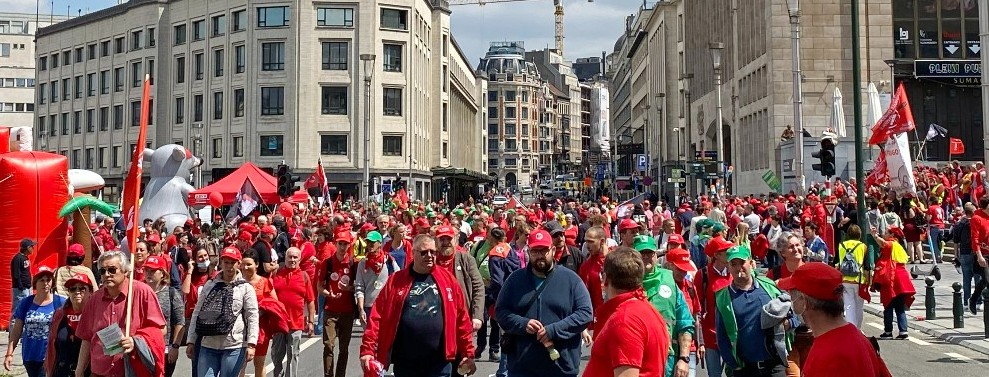In the News June 23
Workers’ Mass Rallies
National Strike in Belgium against Price Increases, Wage Restriction and War

On June 20, workers in Belgium held a one-day national strike and a mass demonstration in the capital, Brussels, to demand an end to skyrocketing prices and an end to wage freezes. It is estimated that more than 80,000 workers participated in the demonstration. Strikes took place in several sectors, particularly in transport, bringing the country to a standstill. All departures from Brussels International Airport were cancelled during the day, and other airports in the country were also affected. Metro, bus and streetcar services were also disrupted to varying degrees across the country.
The actions were organized by the General Labour Federation of Belgium (FGTB), the Confederation of Christian Trade Unions (CSC), and the General Confederation of Liberal Trade Unions of Belgium (CGSLB). Similar demonstrations were held across the country in February, April and May of this year, and more strike actions and demonstrations are planned before the end of June.
“Freeze Prices, Not Wages”
Workers denounced skyrocketing prices, including the price of heating, food, fuel and housing, among others. In June, inflation in the country was estimated at nine per cent, the highest rate in 40 years.
 The FGTB released data on energy price increases between April 2021 and April 2022: electricity up 49.7 per cent; natural gas up 139.5 per cent; fuel oil up 57.8 per cent; diesel up 33.5 per cent; gasoline up 21 per cent. During this period, wages increased by an average of 0.4 per cent. Working-class families and low-income families and individuals can no longer make ends meet because of the high cost of living.
The FGTB released data on energy price increases between April 2021 and April 2022: electricity up 49.7 per cent; natural gas up 139.5 per cent; fuel oil up 57.8 per cent; diesel up 33.5 per cent; gasoline up 21 per cent. During this period, wages increased by an average of 0.4 per cent. Working-class families and low-income families and individuals can no longer make ends meet because of the high cost of living.
Meanwhile, according to the FGTB, the international energy companies have made particularly high profits, taking advantage of soaring prices, exacerbated by the war in Ukraine. According to data published by the National Bank, large Belgian companies are currently making historically high profits, even more than in neighbouring countries.
With regard to the wage freeze, workers are blaming, in particular, the 1996 Wage Standard Act, which restricts the growth of all wages in Belgium, in the name of ensuring that wages in Belgium are competitive with those in other European Union countries. For the period 2021-2022, the maximum margin for wage increases was set at 0.4 per cent. The unions are demanding the abolition of this ceiling, which is renewed every two years.
One of the demands at the demonstration in Brussels was to regain the freedom to negotiate wages that workers find acceptable. There is a form of indexation of wages in Belgium in relation to the cost of living, but this indexation has been rendered completely obsolete by the current steep rise in prices.
The workers are also demanding measures to reduce energy prices, an increase in the minimum wage and an increase in employers’ contributions to workers’ travel costs.
“Money for Wages, Not for War “
At the demonstration, a large number of workers put forward the demand Money for Wages, Not for War, making a direct link between the crisis of rising prices and the policies of Western powers towards Russia. Many chanted the slogan Stop NATO and denounced the US-led NATO alliance and its involvement in the war in Ukraine, including the European Union’s sanctions against Russia and the proliferation of arms sales to Ukraine.
Brussels is not only the capital of Belgium but also the headquarters of the European Union and NATO. It was in Brussels that U.S. President Joe Biden came to announce a round of sanctions against Russia last March. Clearly, workers have neither forgotten nor forgiven this disaster for the economy and for peace, and are pushing forward their just demands.
To view a video on the strike and the demonstration, click here.


(Photos: FGTB, KVPU)
Workers’ Forum, posted June 23, 2022.

|

|

